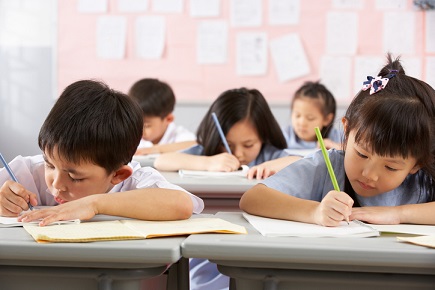
A new US study has revealed some surprises when it comes to whether private school students receive a better education than their public school peers.
Researchers from the University of Virginia looked at data from more than 1,000 students found that all of the advantages supposedly associated with private education disappear when factoring in socio-demographic characteristics.
The study’s lead author, Robert Pianta, and his team started with data from the National Institute of Child Health and Human Development’s Study of Early Child Care and Youth Development.
They then embarked on a multi-site research project that tracked children from birth to 15 years of age with a common study protocol. This included an annual interview, as well as observations at home, in school and in their general community.
According to the findings, the study found no evidence that private schools, net of family background (particularly income), are any more effective for promoting student success than public schools.
“In sum, we find no evidence for policies that would support widespread enrollment in private schools, as a group, as a solution for achievement gaps associated with income or race,” Pianta said.
“In most discussions of such gaps and educational opportunities, it is assumed that poor children attend poor quality schools, and that their families, given resources and flexibility, could choose among the existing supply of private schools to select and then enroll their children in a school that is more effective and a better match for their student’s needs.”
These findings are supported by similar studies from Australia, the United States and the United Kingdom.
The Australian study, led by the University of Queensland, Curtin University and the University of Southern Queensland, found that private schools perform the same or less favourably on tests and education scores when the background of students is taken into account.
Researchers from the University of Queensland, Curtin University and the University of Southern Queensland looked at data from four waves of Australian primary school-aged children born since March 1999.
“Our results show that sending children to Catholic or other independent schools has no significant effect,” Professor Connelly, from the University of Queensland, said.
“Any differences we see in test results are not due to the school type. Rather, they reflect the differences between households and students that already exist in society.”
Professor Connelly said the work adds to a growing literature from three different continents that the returns from attending independent primary schools are no different from those of attending public school.


